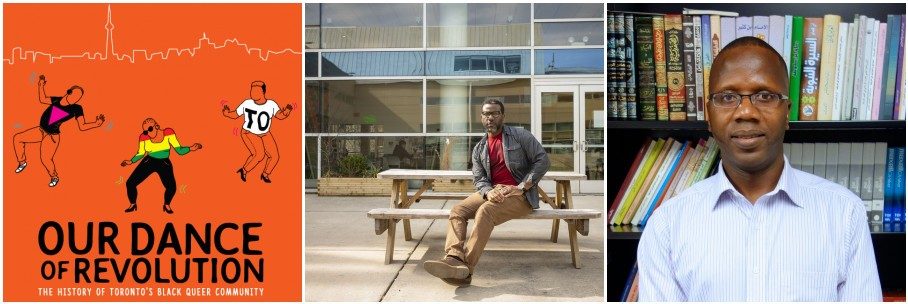As part of Black History Month, the Simone de Beauvoir Institute is proud to host three events exploring the theme of Testimony: Visual and Embodied Gateways to Black Histories.
The series includes
The Unreadable Archives: The Autobiography of Omar ibn Said, an Enslaved African in the American South, a distinguished lecture with Dr. Mbaye Lo of Duke University
Screening of the documentary Our Dance of Revolution: The History of Toronto’s Black Queer Community, followed by a discussion with the film’s director Phillip Pike
Witnessing Gestures: Spatial aspects of Black Visualities in the Cinematic Image, a distinguished lecture with Dr. David Herman, Jr. of the Tyler School of Art and Architecture at Temple University
Co-hosted by the Department of History and the Centre for Oral History and Digital Storytelling. The events will take place on Zoom and are free and open to all. To learn more and register, visit the individual event links.
The Unreadable Archives: The Autobiography of Omar ibn Said, an Enslaved African in the American South
February 17, 2022, 18h30 – 20h00
In his lecture, The Unreadable Archives: The Autobiography of Omar ibn Said, an Enslaved African in the American South, Dr. Mbaye Lo examines what happens when an author’s documents are impossible and his archives unreadable.
Dr. Lo will address this question by sharing his work on the autobiography of Omar ibn Said, a West African Muslim who was enslaved in North Carolina for over half a century. This is the only autobiography written in Arabic, a non-European or creole language.
Professor Mbaye Lo is a fellow at the National Humanities Center and Associate Professor of the Practice of Asian and Middle Eastern Studies and International Comparative Studies at Duke University.
Film screening with the director: Our Dance of Revolution
February 18, 2022, 18h30 – 20h00
The Simone de Beauvoir Institute is proud to host a screening of Our Dance of Revolution: The History of Toronto’s Black Queer Community followed by a discussion with the film’s director Phillip Pike.
Please note that in order to see the film, attendees must register early to receive the streaming link by email.
Phillip Pike is an emerging documentary filmmaker. As a graduate of McGill University’s Faculty of Law, Phillip’s journey of personal and professional discovery has taken him from a career creating change as a community activist and human rights lawyer to a career creating change through storytelling as an independent documentary filmmaker.
He is a graduate of the Documentary Filmmaking Institute (School of Creative Arts & Animation, Seneca College, Toronto). He also received intensive training in video production at Trinity Square Video in Toronto and the Bay Area Video Coalition in San Francisco.
Completed in 2003, his first documentary, Songs of Freedom, tells compelling stories of courage and hope of gays and lesbians living in Jamaica. Critically acclaimed and well received by audiences, Songs of Freedom was an official selection at several film festivals and was acquired for broadcast across North America on a specialty TV channel. Our Dance of Revolution is Phillip’s third film and second feature.
Distinguished lecture with Dr. David Herman Jr. of Temple University
February 23, 2022, 17h30 – 19h00
Existing bodies are never alone. We live with histories and forces of the temporal that pushes and pulls on the relations of worlds and bodies. In the lecture, Witnessing Gestures: Spatial aspects of Black Visualities in the Cinematic Image, Dr. Herman speaks on the interstitial spaces critical to understanding asymmetrical aspects of our seeing out, seeing in and seeing through as a way to illuminate the potentialities of the cinematic image and how images can reveal nuanced perspectives of visualities concerned with Black Life.
David Herman Jr. is Assistant Professor of art education at the Tyler School of Art and Architecture at Temple University. He is a lens-based exhibiting artist, educator and scholar whose work explores the relations between the perceptual and the social as a political endeavor. His research and scholarly interests are grounding in a belief that the social is inherently political and that arts education provides distinct and critical opportunities to engage and understand the affective nature of social life and the being with difference. Herman’s current work seeks to understand the perceptual experiences of preadolescents through a phenomenological framework he refers to as the Perceptual Rite of Passage (PRoP).



